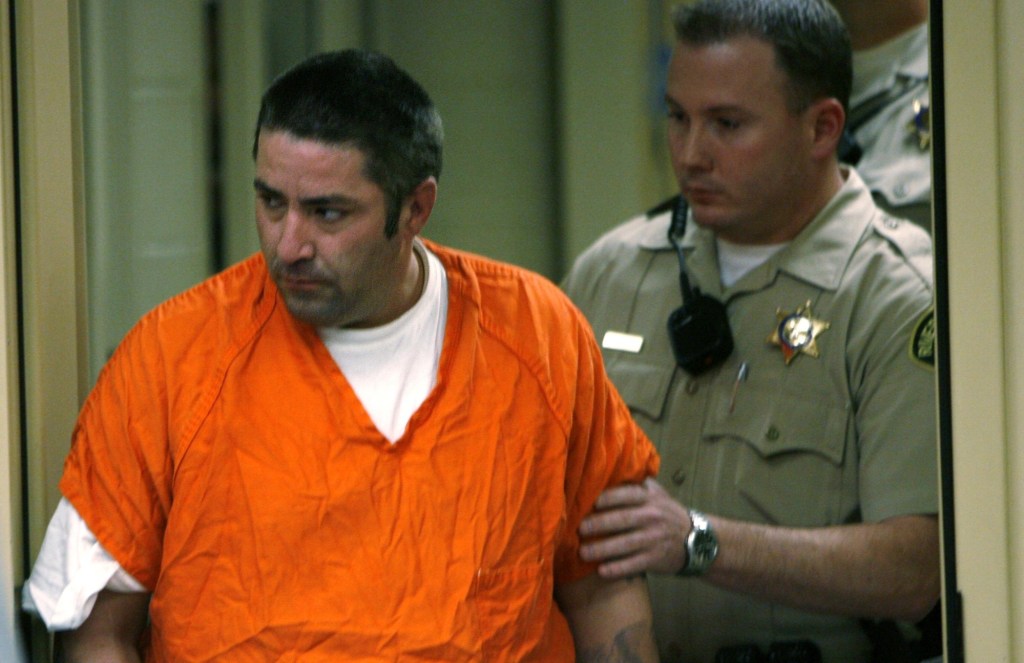The California Supreme Court on Monday, May 5, let stand the arson and murder convictions of Raymond Lee Oyler as well as the death penalty imposed after he was convicted of setting the 2006 Esperanza fire in Riverside County that killed five U.S. Forest Service firefighters.
In their 159-page ruling, the seven justices unanimously affirmed his 2009 conviction in Superior Court in Riverside on 42 counts. Two justices said the penalty phase should be retried because they believe a juror was improperly excused before being impaneled because of her belief that the death penalty should be imposed only in extreme circumstances.
Death penalties in California are automatically appealed.
Oyler’s attorney for the appeal, Michael Clough, argued in a 464-page brief that the lower court erred by rejecting a change of venue sought because of pretrial publicity, and that even the prosecution argued at one point that Oyler received ineffective counsel. Also, Clough said, evidence was improperly allowed that could have swayed the jury’s emotions, and that that juror should not have been excused for her death-penalty beliefs.
Clough also said that while Oyler set some of the 23 fires he was accused of igniting, the Esperanza fire was not among them. The District Attorney’s Office and Cal Fire failed to perform a thorough investigation and withheld evidence, Clough added.
Then at the in-person Supreme Court hearing on Feb. 5 in Sacramento, Clough argued that under a 2019 state law a jury must find that a defendant was the “actual killer.” Clough said a defendant must have “personally committed an act that directly caused the death of another person.”
Clough said the deaths of the Engine 57 crew defending the so-called Octagon House in the San Jacinto Mountains about six hours after the fire was reportedly set near Cabazon on Oct. 26, 2006, did not meet that criteria.
The justices rejected Clough’s written arguments, and ruled that jurors were not properly instructed on the 2019 law but that the error was harmless because they would have reached the same conclusion.
For 30 days, the court can grant a rehearing or modify its decision. Clough said in an interview on Monday, May 5, that he plans to seek a rehearing.

Clough said he believes he can show that Oyler did not set the Esperanza fire. He said he plans to also try and get a new Superior Court trial. Such a jury verdict would overturn the murder convictions.
Capt. Mark Loutzenhiser, 44, Daniel Najera, 20, Jason Robert McKay, 27, Pablo Cerda, 23, and Jess Edward McLean, 27, suffered fatal injuries at the top of a ridge when a blast of superheated air and flames overcame them. The fire burned 40,200 acres and destroyed 34 homes.
Najera’s aunt, Vivian Najera-Reed, said in a text message Monday, May 5, that she was pleased with the ruling.
“There’s not a day that goes by that I don’t think about Daniel and miss him,” she wrote. “It’s sad how many lives were affected by his (Oyler’s) choice of starting the Esperanza fire.
“(Oyler) has to continue to pay the consequences for it for the rest of his life,” she wrote. “We have to pay for the consequences of his choice for the rest of our lives as well, by not having our loved ones with us, unfortunately.
“I have one wish for him: that he seek God honestly and wholeheartedly,” Najera-Reed said.
Oyler, 54, is incarcerated at the California Institution for Men in Chino.
The deaths in a county with a long history of wildfires prompted an outpouring of grief, as well as soul-searching by Cal Fire and the Forest Service, which both in subsequent years emphasized firefighter safety over protecting buildings.
Originally Published:



